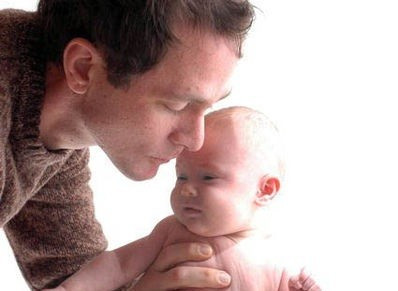Men With Small Testicles More Likely to be Involved in Childcare

A team of scientists at the Emory University found testicular volume is related to how hands-on fathers are in the care of their toddlers.
The findings, published in the Proceedings of the National Academy of Sciences, also showed that people with smaller testicules are more likely to display nurturing-related brain activity while looking at photos of their children.
The researchers were looking to establish why some fathers are more involved in child-rearing than others. Previous research has shown men with lower levels of testosterone are more likely to be involved with parenting, while higher levels increase the likelihood of divorce and polygamy.
"It's an important question because previous studies have shown that children with more involved fathers have better social, psychological and educational outcomes," said James Rilling, an anthropologist at Emory.
"Our data suggest that the biology of human males reflects a trade-off between mating and parenting effort."
One theory suggests that evolution optimises the allocation of resources - in this case sperm - to either mating or parenting to maximise fitness.
While economic and social factors play a large role in the involvement of a father in parenting, the researchers wanted to investigate biological links.
"Our study is the first to investigate whether human anatomy and brain function explain this variance in parenting effort," said Jennifer Mascaro, lead author of the study.
Testes shrink
"Although there are more households with no fathers, when the fathers are around, they tend to be much more involved than in previous decades."
Researchers looked at 70 biological fathers who were living with the child and its biological mother. Both parents were interviewed separately about how involved the father is in child care.
The men's testosterone levels were then measured, while fMRI scans gauged their brain activity while they looked at a picture of their own child with happy, sad and neutral expressions, as well as photos of an unknown child.
Their testicular volume was then measured with a structural MRI scan.
Results showed smaller testes and lower testosterone were related to more direct parental care-giving.
"The men with smaller testes were activating this brain region to a greater extent when looking at photos of their own child," Mascaro said.
"We're assuming that testes size drives how involved the fathers are, but it could also be that when men become more involved as care-givers, their testes shrink. Environmental influences can change biology. We know, for instance, that testosterone levels go down when men become involved fathers."
She also noted that while there was a relationship between testes size and caregiving, results were not perfect: "The fact that we found this variance suggests personal choice. Even though some men may be built differently, perhaps they are willing themselves to be more hands-on fathers. It might be more challenging for some men to do these kinds of care-giving activities, but that by no means excuses them."
© Copyright IBTimes 2025. All rights reserved.




















